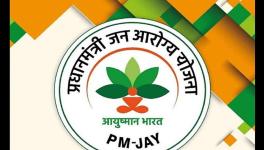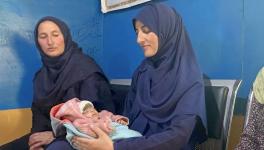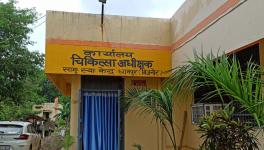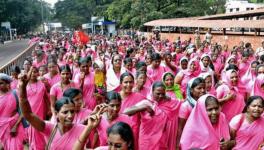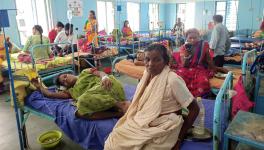Bihar: As AES Deaths Continue to Mount, Youth Volunteers Bring Ray of Hope
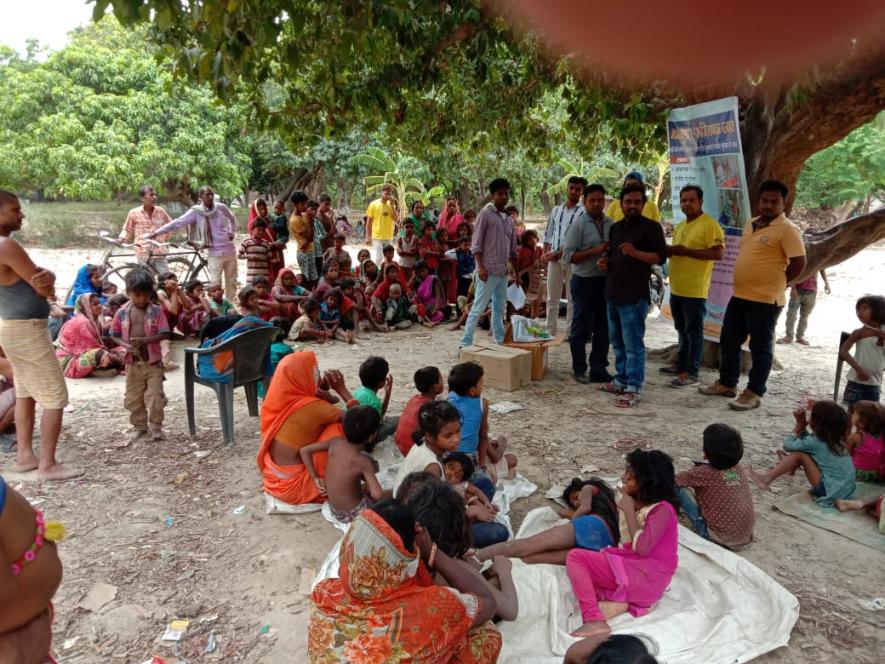
New Delhi/Patna: At a time when the deadly Acute Encephalitis Syndrome (AES) has claimed the lives of over 130 children across Bihar and the state government appears to be absent at every front, a group of youth from different professions have joined hands to help the people in need.
They are going to affected villages to distribute Oral Rehydration Salts (ORS), glucose, thermometer; spreading awareness about prevention and treatment of brain fever; and take the patients to nearby hospitals or public health centres (PHCs).
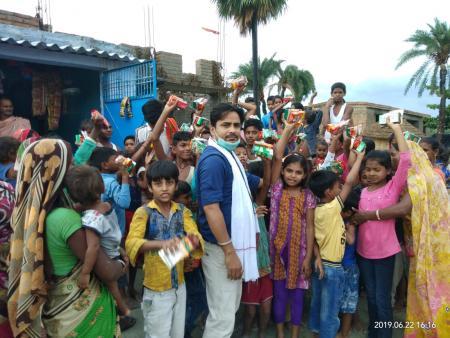
Suspected Acute Encephalitis Syndrome (AES) has affected the lives of over 600 children across 16 districts of the state, with most cases being reported from Muzaffarpur district.
The group of volunteers are working day and night at the Sri Krishna Media College and Hospital (SKMCH) – where highest number of deaths have taken place – to improve its infrastructure, which was primarily the government’s job. They have installed new water purifiers and fans and also repaired the existing but non-functioning ones.
It all started when a Ranchi-based freelance journalist Anand Dutta – disturbed with the mounting death toll – wrote a Facebook post a couple of days back, urging citizens to donate money for the relief work in the AES-hit areas of Bihar. He had no plans to launch a massive campaign. He had begun the fun raising with an aim to collect a few thousands so that it could be handed over to some of his contacts in Muzaffarpur who were contributing their bit to help the patients and their attendants.
Also read: Encephalitis Deaths: Bihar’s Healthcare System in ICU
But the Facebook post went viral after it was shared by well-known journalists and funds started pouring in. “When it (the donation) reached Rs 1.5 lakh in just one day or two, I appealed people to stop as I would also be accountable to give them expenditure details. Realising people’s generosity to contribute for the right cause, I changed my plans and decided to do the relief work on a larger scale. As a famous Hindi proverb goes by ‘akela chana bhaad nahin phod sakta (one cannot bring large changes singleghandedly), I contacted my friends and seniors who were already active in Muzaffarpur. We formed a team of around 50 people, with young men working outside Bihar ready to volunteer us. Once we formed a team and prepared a detailed plan of action, I once again appealed people to resume their donations,” Dutta told NewsClick.
Strengthened with monetary support, the young men initially formed three teams of four-five people each to hit the ground. One team – comprising Dutta himself – was tasked to focus on SKMCH and the rest two teams were sent to affected villages in neighbouring blocks of Muzaffarpur districts with ORS, glucose and thermometers.
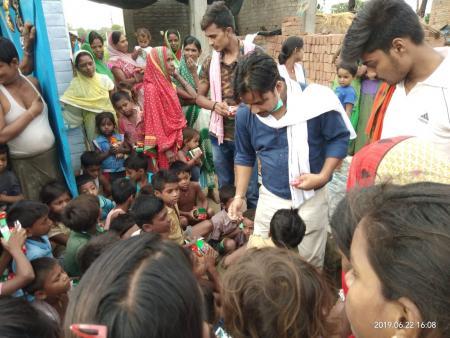
“First thing we witnessed in the hospital was the high influx of patients and their attendants. Majority of them were too poor to afford food for themselves from outside. So, we first got breakfast, lunch and dinner prepared and started distributing among distressed parents and attendants. It has been going on for the past four days and will continue till the situation eases, depending on the funds we receive,” he said.
The successful implementation of first step of the relief operation gave them a boost and then they concentrated on the other issues the hospital was facing. The team realised the shortage of clean water and installed three water purifiers with 50 litres capacity each with the permission of hospital authorities. “We also repaired two water purifiers, which were not functioning. Now, a total of five water purifiers are functioning in the hospital and that has addressed the water crisis to a great extent,” said Dutta.
The situation in the corridors of the hospital is extremely chaotic with patient’s attendants lying or sitting on the floor in large numbers. There were insufficient number of ceiling fans, most of them being non-functional. “We got eight fans fixed and installed 13 new fans where they were needed the most,” he said.
Also read: AES Deaths: SC Asks Centre, Bihar Govt to Respond in 7 days
The third challenge before the team was addressing the sanitation problem. At this juncture, they got the support of National Service Scheme (NSS) volunteers who joined hands and took responsibility of cleaning the hospital’s wards and its premises. “We provided hand gloves, masks and dustbins. They are honestly working round the clock in shifts to improve sanitation in and around the hospital to make sure that the babies don’t fall sick further due to infections,” he said. In addition, Dutta said, they are giving money to the hospital’s sanitation workers to work overtime with their volunteers to clean the dirty and unhygienic toilets and surroundings.
“There are 10 water coolers which are non-functioning. We have got three of them repaired and making efforts to get the rest fixed. However, due to the extreme weather he we are unable to get electricians,” he added.
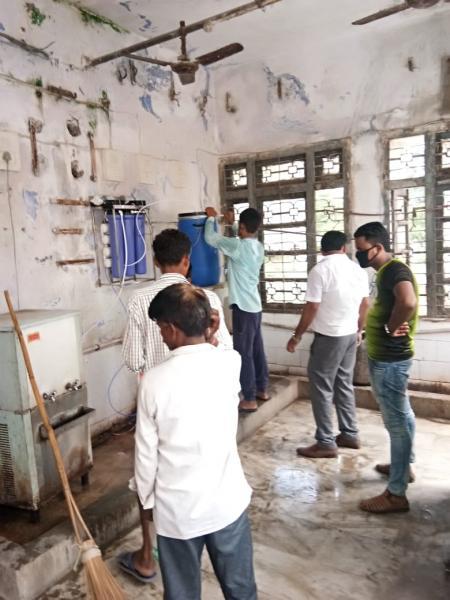
On being asked about the cooperation they are getting from hospital authorities, he said, “When we met the hospital superintendent, he gave us a go ahead. He assured us full cooperation, which we are getting no doubt. Recently, I got a call from the superintendent who requested us to arrange bigger size dustbins that can be covered. We are sending them 30 dustbins.”
THE NEXT STEP – REACH OUT TO PEOPLE IN VILLAGES
After the number of volunteers increased, several teams of four-five persons have been formed to visit neighbouring villages to create awareness among the people about the do’s and don’ts.
Satyam Jha – another member of the team – said they have prepared a route map and are visiting the villages in Kanti, Bandra, Musahri and Meenapur blocks, which are severely hit by the encephalitis outbreak.
“We are doing it in a well-coordinated manner, with a detailed planning. We are going to villages and distributing glucose, ORS and thermometers, apart from educating them not to panic and how to tackle the situation effectively if their children fall ill. We are giving one thermometer for a group of four-five houses. We also train them how to measure temperature. While we were visiting Haridaspur village in Kanti block and Chhtrapati village in Meenapur block, we found two children with high temperatures. We immediately rushed them to the nearest PHC where they were attended by a doctor. Fortunately, they were not diagnosed with encephalitis. Now, they are doing well,” he said.
The situation of a large number of PHCs is so pathetic that majority of them are run by paramedics because of shortage of doctors in the state. “When we reached a PHC in Bandra block with a child with high temperature, we got to know that the health centre does not even have a thermometer. We were told that the one they had was broken. Shocked, we gave them one,” said Jha – who is also a journalist.
On being asked about the government’s efforts and implementation of its tall promises of aggressive awareness campaign and distribution of ORS and glucose, he said, “No, ORS and glucose are not reaching all the villages. The government efforts are just on papers.”
Dutta explained that the one thing, which is missing on part of the district administration, is “proper short-term planning” to respond to the emergency situation. “What the state government should have done in the beginning when encephalitis was going out of control, they should have issued an advisory to private hospitals in the state to admit patients and treat them free of cost and assured them that the government will bear the expenses, at the least those who have Ayushman cards. But it was not done. Had it been the case, SKMCH would not have emerged as the epicentre of children deaths and the deadly fever would not have taken the form of an epidemic. If the Muzaffarpur district administration had no funds to tackle this situation, the district magistrate should have appealed people to come forward for help. But it was also not done,” he observed.
Giving details of the expenditure so far, he said so far, Rs 2 lakh has already been spent. “We raised Rs 4 lakh in just four days. I have account of every single penny we have spent. We are continuously releasing it on social media platforms to maintain transparency,” he added.
Jailed for going overboard to save children and minimise the rising death toll of Japanese encephalitis affected patients at BRD Medical College in Gorakhpur in 2017, the Uttar Pradesh-based pediatrician, Dr Kafeel Khan, has been volunteering his services in the affected villages for the past several days
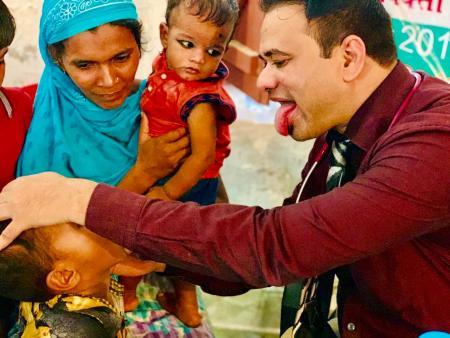
.
“Over a thousand children have so far been examined and given free medication at encephalitis screening camps at different places in Bihar’s Muzaffarpur district. We are also telling parents about symptoms/prevention from the disease and along with instructions what to do if the child showed symptoms of encephalitis,” he told NewsClick. His Facebook and Twitter feeds are also abuzz with videos aimed at spreading awareness about the symptoms of encephalitis.
The cause of the large number of deaths – according to him – is more because of mismanagement than the disease. “How will one doctor handle four ICUs?” he asks, pointing at reports of severe shortage of paediatricians at SKMCH.
“The number of doctors and nursing staff at SKMCH is not enough. Also, there are not enough beds to accommodate patients. The norms to be followed inside the ICU have also been thrown to the wind,” added Dr Khan.
He had been arrested again by the Bahraich police in September last year after he had examined children admitted to the district hospital after 70 deaths in 45 days due to a mysterious fever.
Asked if he has taken prior permission this time, the doctor said he learnt from his past mistakes and is now doing everything as per the law. “I have learnt from my past mistakes. I took proper permission from the administration before holding health camps. I will be camping in Muzaffapur for some more time to provide assistance if further permitted by the district administration,” he said.
Khan was hailed for going extra miles and reportedly paying from his own pocket to buy oxygen cylinders to save lives of children in BRD hospital. However, he was suspended and later sentenced to seven months in jail and charged under several sections of the Indian Penal Code (IPC) relating to criminal conspiracy and culpable homicide. He is out on bail.
Also read: Skeletons Found in SKMCH’s Backyard, AES Patients Continue to Suffer
Get the latest reports & analysis with people's perspective on Protests, movements & deep analytical videos, discussions of the current affairs in your Telegram app. Subscribe to NewsClick's Telegram channel & get Real-Time updates on stories, as they get published on our website.









